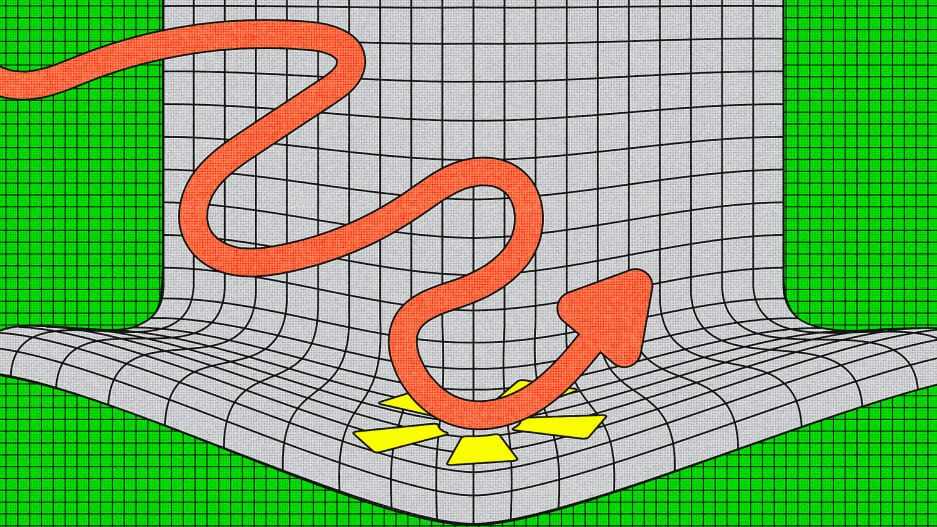- | 9:00 am
Gen Z believes safety and failure can coexist in capitalism. An anthropologist explains why
Christina Elson’s research shows how some young Americans are thinking about capitalism in new ways.

Some business leaders are bewildered by their employee’s views of capitalism. I’m a Gen Xer. I teach college students and parent younger Gen Zs. As an anthropologist, I like to ask questions. I’m interested in capitalism and what young Americans think about it. Many of them are what I call safety capitalists. Charlie Munger once said that capitalism without failure is like religion without hell. Can safety and failure coexist in capitalism? My research paints a picture of why some young Americans say they can.
WHAT IS SAFETY CAPITALISM?
In safety capitalism, entrepreneurs boldly predict the future and profit from developing new and better ways to do things. Most young Americans support the capitalist framework linking creativity, work, and reward. They support private ownership, competition, profit, and the right to decide how to use one’s wealth, and this increases with age. Most see entrepreneurs and small business as a force for good.
The picture is missing risk and failure. To teach self-esteem, Millennial kids received a lot of assurances of their importance. The helicopter parenting many experienced helped delay adulthood and ignite a cultural obsession with safety. Millennials married later, started working later, and relied longer on family for financial support than earlier generations. Gen Zs continue the trend. Many are anxious about their prospects and less comfortable than Millennials with risk and ambiguity. Safety capitalism drives interest in things older generations consider unnecessary and unaffordable.
Among Gen Zs, 65% say the government should provide a job to anyone who wants one. 67% say unemployment insurance should match your current salary. Millennials are slightly less likely to agree.
IS SAFETY CAPITALISM SOCIALISM?
No. Most young Americans don’t trust the federal government or other people. Most do not think the government should limit individual wealth or cap company profits. Seventy-two percent say free markets do better than the government picking winners. Sixty-six percent say government involvement in the economy hinders entrepreneurship. To be clear, they don’t support laissez-faire capitalism either.
WHEN DID SAFETY CAPITALISM SHOW UP?
The economic and psychological outlines of safety capitalism showed up before the pandemic. Until recently, most economists worried millennials were missing out on the economic engine that generated their parent’s middle-class lifestyle. They were not buying houses at the same rate as older generations and had low retirement savings. Many have student loan debt.
The helicopter parenting millennials experienced in childhood developed into an increasingly overprotective culture focused on physical and emotional safety. In an essay called The Coddling of the American Mind, Jonathan Haidt, a psychologist, and Greg Lukianoff, a lawyer, suggested it was destroying Gen Z’s willingness to confront new ideas and experiences.
Andrew Yang codified the value proposition of safety capitalism. A Gen Xer and candidate in the 2020 U.S. Presidential race, his platform focused on human-centered capitalism and Universal Basic Income. These ideas persist in statistics illustrating millennial and Gen Z attitudes toward redistribution. More have favorable views of universal basic income (46%) than welfare (31%). Most think people who get welfare should work.
WHAT IS THE FUTURE OF SAFETY CAPITALISM?
Young Americans grew up in the world’s wealthiest nation. Unsurprisingly, they have certain expectations about a support network. Success and happiness, self-actualization, reaching your full potential, or what Gen Zs call “living your best life,” depends mostly on developing grit and a sense of personal responsibility.
It’s not bad that some part of life requires persistent effort and painful failure. In 1958, 92% of Americans thought the trials and hardships of life made us better. Today, 59% of Gen Zs think this.
Millennials do better than Gen Zs on various measures of grit, such as optimism, confidence in completing challenging tasks, and comfort with ambiguity—about three in five score well compared to around half of Gen Zs.
The oldest Millennials are in their early 40s, the average age to start a business in the U.S. Will their interest in entrepreneurship match that of earlier generations? Over half of them have kids and own a home. Support networks that include affordable education, housing, healthcare, and access to capital are essential. They will buffer, not eliminate, risk.
The worst outcome of safety capitalism would be if it hampers entrepreneurship and dulls the gritty journey of self-actualization. From this perspective, we’ll all fail if none of us do.







































